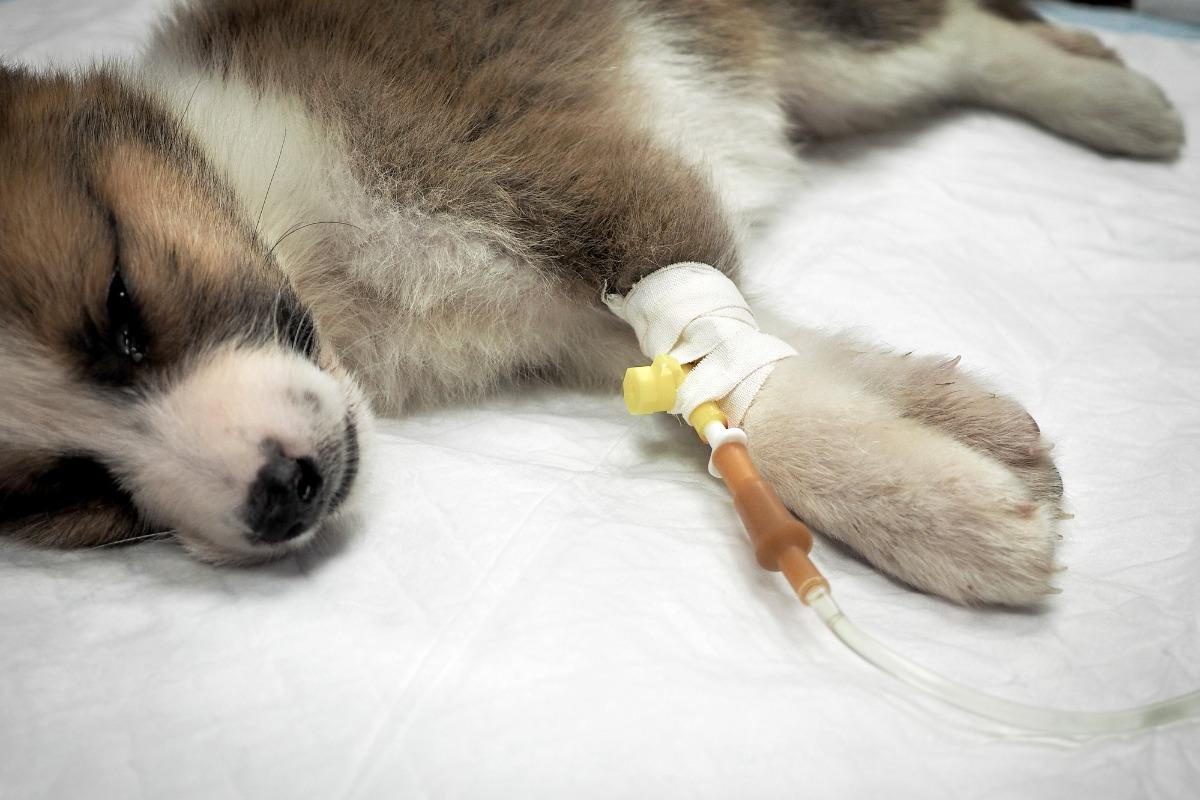
- posted: Sep. 06, 2023
Canine parvovirus is a highly contagious virus that can affect all unvaccinated dogs, but puppies younger than 4 months are most at risk. Dogs infected with the parvovirus are said to have “parvo “which affects the dogs gastrointestinal track by destroying cells and disrupting absorption and the gut barrier. Severe cases may also affect the bone marrow and lymphopoietic tissues.
Canine parvovirus is particularly concerning because of how easily it is spread. The virus is resistant to heat and cold and can survive on surfaces for long periods of time. The virus can be easily spread through infected feces, water bowls, collars, soil, grass, hair, cages, shoes and clothes.
Although common, the severity of parvo can vary and often be fatal. Most deaths occur within the first 48 to 72 hours after symptoms appear. If your dog shows any of the following signs, call us immediately at 805-522-7476 to make an appointment.
Dogs with parvo show signs of;
- Lethargy
- Loss of appetite
- Weight loss
- Abdominal pain
- Fever
- Vomiting
- Severe diarrhea
- Rapid dehydration
- Weakness
- Depression
There is no cure for parvo so treatment focuses on supporting the dog’s body systems and immunity as well as the prevention of dehydration. Care is intensive and can be expensive. Early recognition and proper medical care give dogs the best chance of survival. The survival rate for dogs with parvo treated by a veterinarian ranges from 68% to 92%.
The good news is parvo is a preventable disease. Vaccinations and good hygiene are key. In addition don’t let your puppy come into contact with unvaccinated dogs until they have received their full round of parvo vaccines. It’s best to avoid places like parks, dog parks, doggie day care facilities or puppy training classes to minimize possible exposure to a parvo virus until all the vaccines have been given.
We are here to help you make sure your puppies and adult dogs stay up to date on their vaccines so they have the best chance of being protected against viruses like the canine parvovirus. Call us today with any questions at 805-522-7476 or easily make an appointment online at https://www.rsvet.com/appointment
Resources:
https://www.avma.org/resources-tools/pet-owners/petcare/canine-parvovirus
